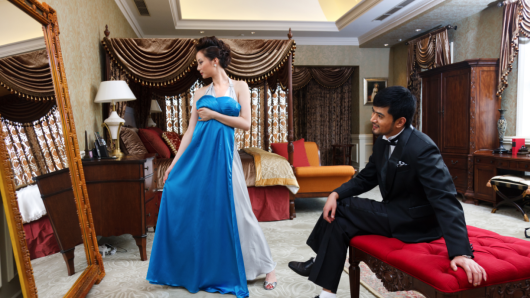Women in Asia are a growing luxury force, report shows
05 December, 2018

Women — especially in China — are playing an increasingly big role in Asia's luxury spending.
That is a key finding of Wealth Report Asia 2018, Bank Julius Baer's latest look into high-end consumption in the region released Tuesday.
It tracks the spending habits of so-called high-net-worth individuals, which the Swiss private banking group said have "net investable wealth" of more than $1 million, excluding property in which they mainly reside.
It said that the growing buying power of wealthy Asian women is driven by factors including more of them in senior management positions and more self-made female millionaires.
And while China continues to dominate overall global luxury spending — accounting for 30 percent — women are becoming an increasing force in that aspect of conspicuous consumption in the world's second-largest economy.
"In terms of how much they buy, women actually account for half of Chinese luxury spending," Julius Baer's Pearlyn Wong, executive director for markets and advisory solutions in the Asia Pacific, told reporters while introducing the findings.
The report described that as a trend that's been developing for the past five years.
Millennial luxury
Generations also play a role in the shifting consumption, according to the Swiss firm.
"Young, female, increasingly fashion-conscious, free with spending and active on social media," the report described the profile of a key cohort driving luxury spending in China.
"Driven by the ease of online shopping and financial support from parents, Chinese female millennials are buttressing the luxury market at home and abroad," it said.
The report also said that the Julius Baer Lifestyle Index increased 2.91 percent from the year before in U.S. dollar terms, supported by what it described as an improving global economy and continued wealth generation. The index tracks spending on 22 luxury items, including cigars, ladies shoes, men's suits, watches, Botox, wine, boarding schools, Lasik eye surgery, cars and business class tickets in 11 Asian cities.
Shanghai was the most expensive city for luxury spending in 2018, with Singapore coming in second and Hong Kong third. The latter fell from the top spot it held last year.
Bhaskar Laxminarayan, Julius Baer's Asia chief investment officer and head of investment management, said that China's slowing economy is unlikely to cause a slowdown in luxury spending.
The country still has relatively high growth rates above 6 percent, so there is plenty of room for discretionary spending, he said.
"The long term consumption trend hasn't changed," Laxminarayan said.
Kelly OlsenHong Kong Correspondent
TAG(s):
